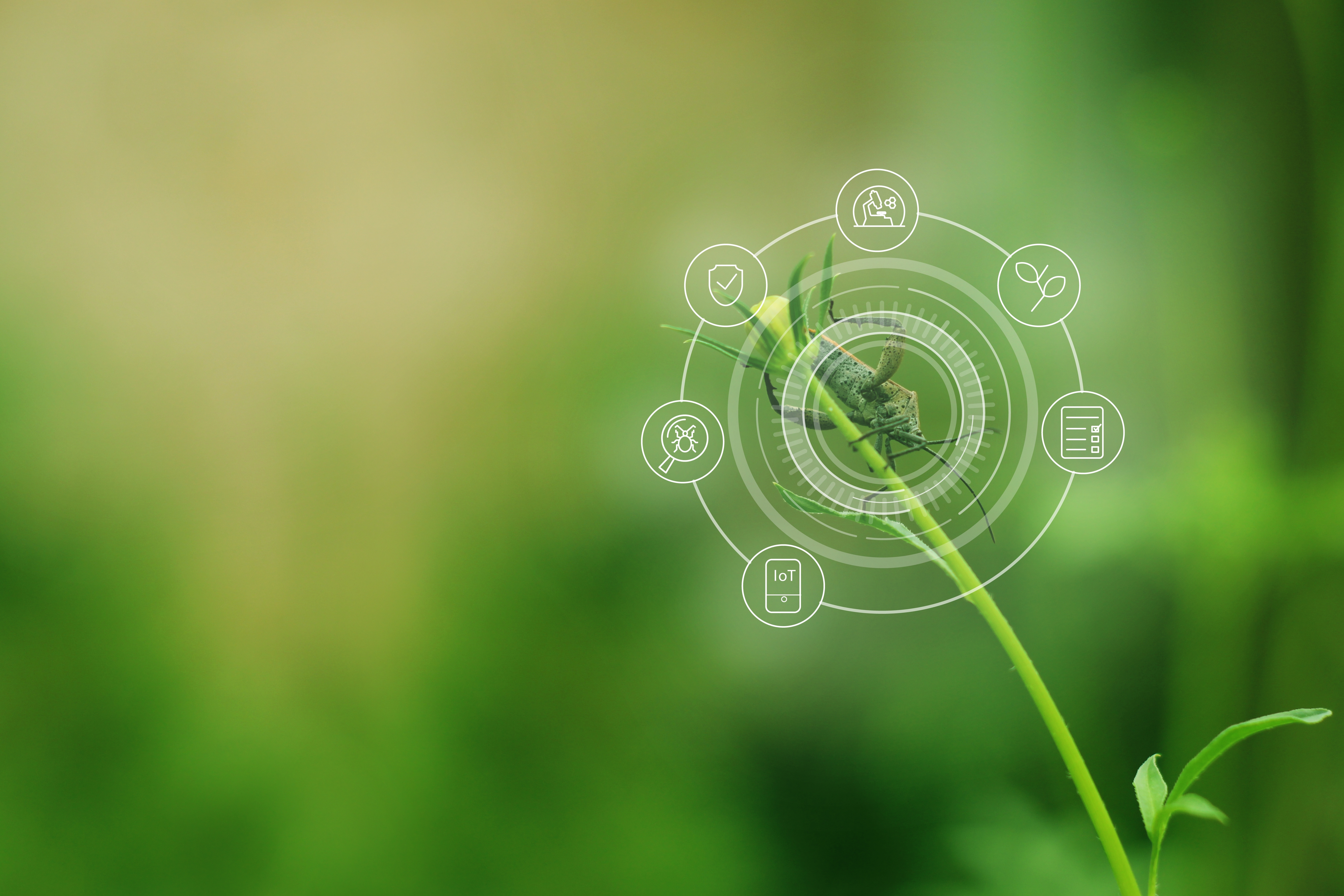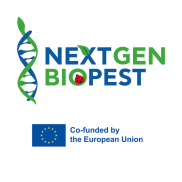Innovative products and techniques for pest management with fewer pesticides
NextGenBioPest: Revolutionizing Pest Control for a Sustainable Future
The Urgency to Reduce Pesticides: Protecting Ecosystems and Human Health
Intense farming using highly specialized crop production systems and extensive use of external inputs like pesticides and fertilizers characterize modern agriculture. However, the negative impacts of pesticides on human health and the environment are causing significant worries in society (Kim et al., 2017; Gould et al., 2018). These concerns are the driving forces behind the EU’s Farm2Fork program, which aims to reduce pesticide use by 50% by 2030 and is intended to increase agricultural sustainability and food security in the EU.
Agronomic circles are calling for pesticide-free agriculture to be the focus of the next research paradigm due to the Global North’s apparent shift towards more stringent pesticide regulations (Jacquet et al., 2022). According to estimates, most arable land can significantly reduce pesticide use without compromising profitability (Lechenet et al., 2017).
Globally, weeds and pests are becoming more resistant to pesticides, altering how pesticides are used (Gould et al., 2018). Prior attempts to curb pesticide use have been met with limited success, whether implemented at the national or EU level (Deguine et al., 2021). For instance, France’s Ecophyto program, which was deemed a total failure by the Ministry of Agriculture, sought to limit the usage of pesticides beginning in 2008 (Barbière, 2018). Thus, a critical question that still must be answered is how to achieve the pesticide-use reduction targets.
Introducing NextGenBioPest: A Game-Changing Solution for Safer Pest Management
Plant diseases and pests reduce agricultural output and jeopardize food security. Synthetic insecticides are largely used to control them, which has a detrimental effect on the ecosystem. Therefore, it is imperative to develop novel approaches to pest and pathogen control to protect human health and address the challenge of raising crop yields while lowering the usage of chemical pesticides. The main goal of the NextGenBioPest project (an EU-funded project) is to address this demand by providing innovative and enhanced products, techniques, and procedures for the logical management of the most challenging arthropod pests and infections, with a significant decrease in the usage of pesticides.
A new toolkit for plant protection in important vegetable and fruit crops will be made available by the project. This toolkit will include novel biological control agents and techniques to improve their performance in the field, low-risk/green chemicals, RNA-based pesticides, plant resistance inducers, and cutting-edge agronomic and ecological practices. These advances will be combined with currently used strategies to provide efficient, environmentally friendly, and long-lasting crop protection. Large-scale field studies will verify them, and their effectiveness and socioeconomic effects will be evaluated. Extensive training, specific communication channels, and demonstration fields will facilitate the proper distribution and assimilation of the results by stakeholders and end users. Their exploitation will be ensured via commercialization and data protection procedures.
These objectives will be met by combining influential industry and institutional partners with program managers for pest control. The multidisciplinary and multi-actor team will use their strong networks, varied experience, and access to preliminary data and resources to accomplish project objectives and guarantee that the information and tools produced to influence the economy, the environment, and society.
The Best Practices Handbook produced within the NextGenBioPest project will be a comprehensive guide outlining key policy messages and recommendations derived from extensive research and dissemination efforts. This handbook will offer actionable insights for policymakers, stakeholders, and practitioners in the agricultural and environmental sectors by drawing on the project’s innovative approaches and cutting-edge technologies in pesticide production and pest management.
Additionally, it will provide a synthesis of the project’s findings, emphasizing sustainable practices, risk reduction strategies, and pathways for enhancing biodiversity while mitigating the environmental impacts of conventional pesticide use. Through clear and concise policy briefs, this handbook will facilitate informed decision-making, foster collaboration among stakeholders, and promote adopting responsible pest management practices globally.
In order to establish connections with pertinent research efforts and EU stakeholders, European agrifood and environmental organizations, industries, local authorities, and policymakers are cordially invited to participate in the virtual Innovation Hub (VIH) activities. The NextGenBioPest Best Practices Handbook will be improved, and specific policy recommendations will be formulated with the help of a community to exchange knowledge and best practices, transfer, and train. Throughout the project’s duration, there will be constant and open communication with representatives of European national governments, research organizations, and administrations.
This project has received funding from the European Union’s Horizon Europe research and innovation program under grant agreement No 101136611.
References
Barbière, C. (2018, November 14). France struggling to phase out pesticides. Www.Euractiv.Com. https://www.euractiv.com/section/agriculture-food/news/france-struggling-to-phase-out-pesticides/
eguine, J.-P., Aubertot, J.-N., Flor, R. J., Lescourret, F., Wyckhuys, K. A. G., & Ratnadass, A. (2021). Integrated pest management: Good intentions, hard realities. A review. Agronomy for Sustainable Development, 41(3). Scopus. https://doi.org/10.1007/s13593-021-00689-w
Gould, F., Brown, Z. S., & Kuzma, J. (2018). Wicked evolution: Can we address the sociobiological dilemma of pesticide resistance? Science, 360(6390), 728–732. https://doi.org/10.1126/science.aar3780
Jacquet, F., Jeuffroy, M.-H., Jouan, J., Le Cadre, E., Litrico, I., Malausa, T., Reboud, X., & Huyghe, C. (2022). Pesticide-free agriculture as a new paradigm for research. Agronomy for Sustainable Development, 42(1). Scopus. https://doi.org/10.1007/s13593-021-00742-8
Lechenet, M., Dessaint, F., Py, G., Makowski, D., & Munier-Jolain, N. (2017). Reducing pesticide use while preserving crop productivity and profitability on arable farms. Nature Plants, 3(3), 1–6. https://doi.org/10.1038/nplants.2017.8
Shattuck, A., Werner, M., Mempel, F., Dunivin, Z., & Galt, R. (2023). Global pesticide use and trade database (GloPUT): New estimates show pesticide use trends in low-income countries substantially underestimated. Global Environmental Change, 81, 102693. https://doi.org/10.1016/j.gloenvcha.2023.102693
Contacts
- Project coordination
Dr John Vontas ([email protected])
FORTH, Greece
- Project dissemination, exploitation, and communication
MSc Angeliki Milioti ([email protected])
Smart Agro Hub, Greece










































































